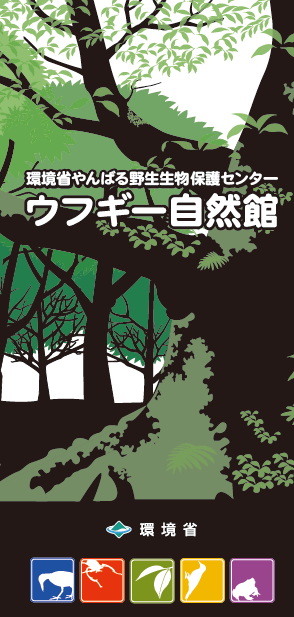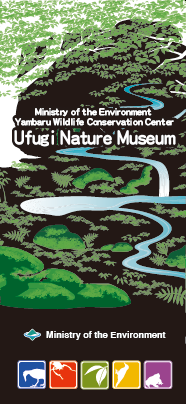Museum information
About us
About the Museum
The Yambaru Wildlife Conservation Center Ufugi Nature Museum was opened in April 1999, and then renovated and reopened in April 2010, as a base facility for public awareness activities to deepen understanding and interest in wildlife conservation among visitors to Yambaru, and conservation and propagation projects for endangered wildlife in Yambaru such as the Okinawa woodpecker and the Okinawa rail.
.jpg)
What does the name “Ufugi” mean?
To coincide with the reopening of the museum in April 2010, we asked the residents of the three Yambaru villages to come up with a new name to make it more appealing to the public. Out of a total of 68 entries, we chose “Ufugi Nature Museum” as the facility’s new name. “Ufugi” means “big tree” in the local dialect. The name was chosen because it evokes the image of large, solid trees supporting the creatures that are so important to the Yambaru forest.
Inside the exhibition room
Entrance zone
Here we introduce our museum and give an easy-to-understand explanation of what Yambaru, the only place of its kind in the world, is all about, such as why its nature is so precious and why some creatures are unique to this place. On the floor is a large map of “Yambaru seen from the sky”, and the “Discovery of living things” section provides some of the latest information about the area’s nature.

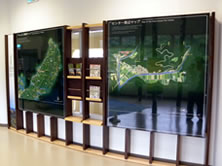
Exhibition zone
The exhibits introduce the nature and creatures of Yambaru and its fascinating ecosystem that connects the ocean, rivers, and forests. The “Endemic species” section provides more details about Yambaru’s ecology and the current status of its various endemic species such as the Okinawa rail and the Okinawa woodpecker. The exhibition is full of discoveries and surprises, such as “connection cards” showing how living things are connected to each other, precious audio and visual exhibits, and “the forest at night,” which is different from the daytime. In the “Challenges facing Yambaru” section, we introduce current issues that we want more people to know about, such as roadkill of wildlife and the problem of invasive species.
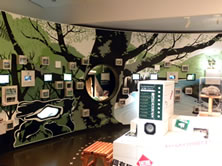
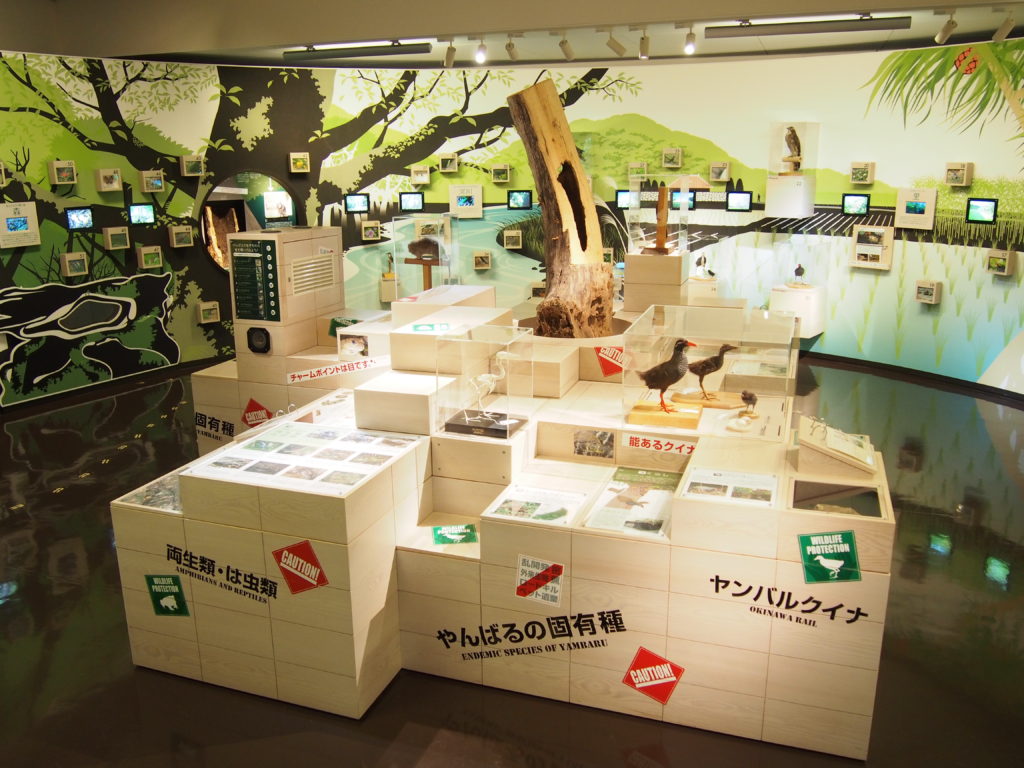
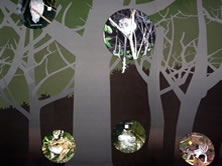
Yuntaku zone
In the “Story of Yambaru’s bounty” section, we introduce the lifestyle and wisdom of the people who have a deep connection with Yambaru’s nature, along with impressive local scenes of the four seasons. In the Yuntaku space, visitors can take their time looking at many books and materials that will help them learn more about the profound world of nature. This is where everyone can get to know the charms of Yambaru more slowly and thoughtfully, or just gather with others and Yuntaku (talk).
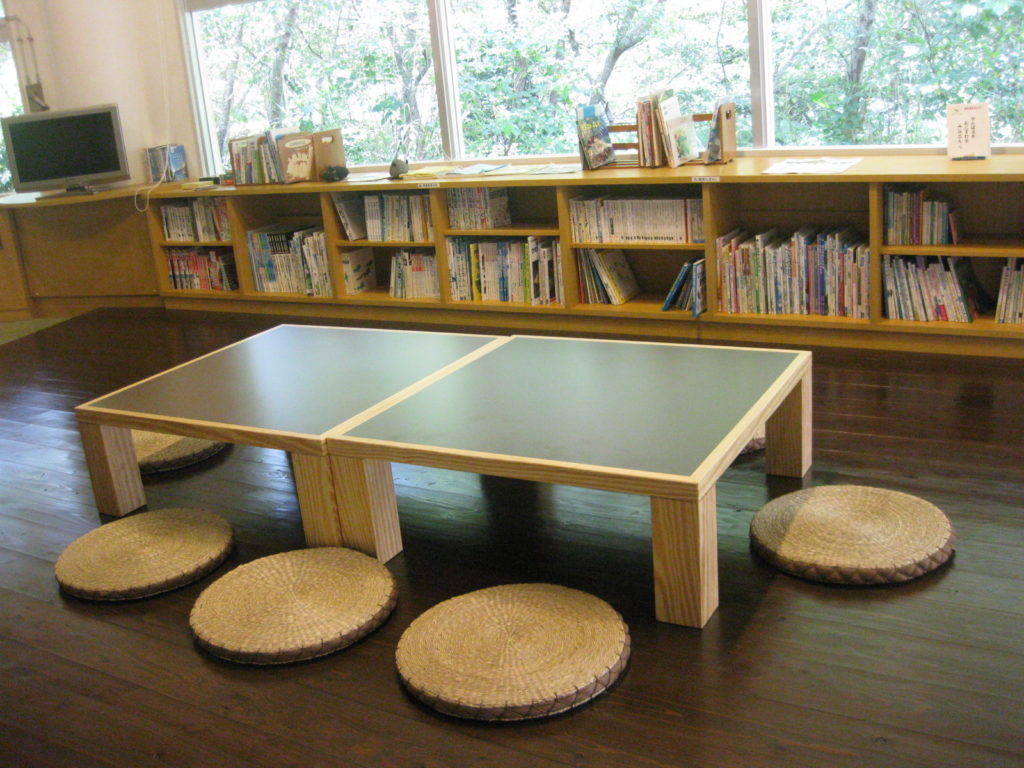
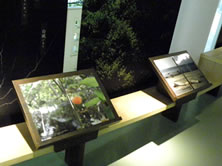
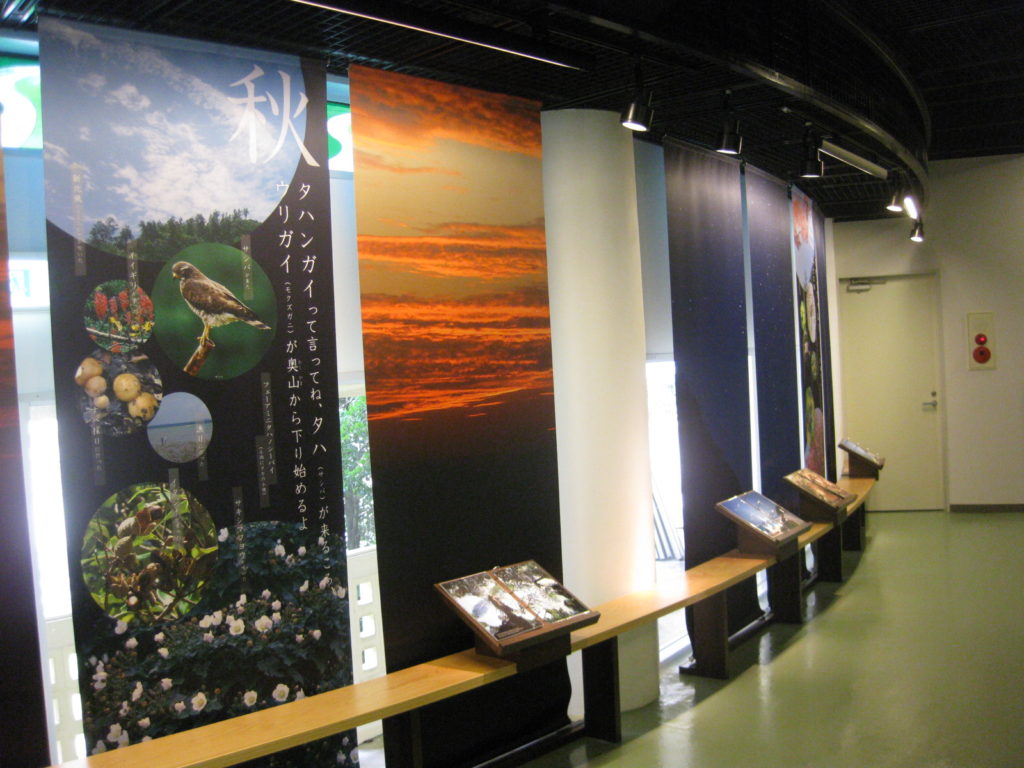
Video and lecture room
A large screen has been installed to show the original video “Yambaru’s Forests: The Coexistence of Forest, Creatures and People” (about 18 minutes long), which introduces the nature and charm of Yambaru. *Showings are currently suspended due to problems with the video equipment.
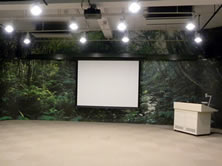
Facility information leaflet
The leaflet can be downloaded here.
It is also available inside the museum, so please feel free to pick one up.


